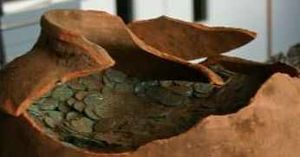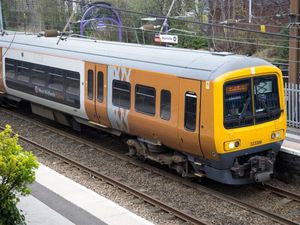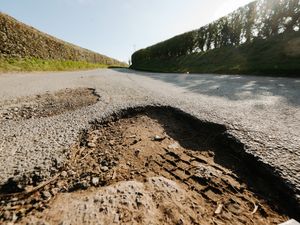10,000 Roman coins unearthed
[caption id="attachment_75801" align="alignright" width="346" caption="Roman coins found near Shrewsbury"][/caption] One of the largest hauls of Roman coins ever discovered in Shropshire has been unearthed after nearly 1,700 years underground by a metal detector enthusiast on his first treasure hunt, it was revealed today. One of the largest hauls of Roman coins ever discovered in Shropshire has been unearthed after nearly 1,700 years underground by a metal detector enthusiast on his first treasure hunt, it was revealed today. The collection of more than 10,000 coins, most of which were inside a pot, was uncovered by Nick Davies from Ford during a search of land in the Shrewsbury area - just a month after he took up the hobby. Read the full story in today's Shropshire Star

 One of the largest hauls of Roman coins ever discovered in Shropshire has been unearthed after nearly 1,700 years underground by a metal detector enthusiast on his first treasure hunt, it was revealed today.
One of the largest hauls of Roman coins ever discovered in Shropshire has been unearthed after nearly 1,700 years underground by a metal detector enthusiast on his first treasure hunt, it was revealed today.
The collection of more than 10,000 coins, most of which were inside a pot, was uncovered by Nick Davies from Ford during a search of land in the Shrewsbury area - just a month after he took up the hobby.
It was today described as a "large and important" find by experts who say it is the biggest haul of Roman coins to be found anywhere in Britain this year.
Peter Reavill, finds liaison officer for the Portable Antiquities Scheme which records archaeological finds made by the public, said the coins appear to date from the period 320AD to 340AD, late in the reign of Constantine I.
He said that among the coins were issues celebrating the anniversary of the founding of Rome and Constantinople. In total the coins and the pot weigh more than 70lbs.
Mr Reavill said the exact location of the find could not be revealed for security reasons.
He said: "This is probably one of the largest coin hoards ever discovered in Shropshire. The finder, Nick Davies, bought his first metal detector a month ago and this is his first find made with it.
"The coins were placed in a very large storage jar which had been buried in the ground about 1,700 years ago."
The coins will now be taken to the British Museum for detailed examination, before a report is sent to the coroner.
Mr Reavill said: "There seems to be a minimum of 10,000 coins, the majority of which are corroded together in the pot.
"The coins are all bronze, and some of them have been silver washed. They are known as nummi and were common during the 4th century AD.
"The top of the pot had been broken in the ground and a large number of the coins spread in the area. All of these were recovered during the excavation with the help of a metal detector. This added at least another 300 coins to the total.
"It is likely that the hoard represents a person or communities wealth, possibly as a payment for a harvest. Why it was not collected by the owner is a mystery, but one that we can share and enjoy 1,700 years after the fact."
By Russell Roberts




